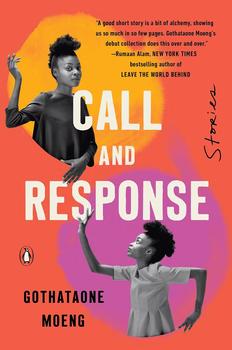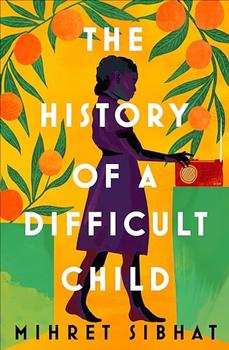Summary | Excerpt | Reviews | Beyond the book | Read-Alikes | Genres & Themes | Author Bio

The stories in Nana Nkweti's dexterous debut collection examine the raw alienation of being displaced or caught between worlds through a diverse cast of characters. A teenager worries that her parents will disapprove of her aspiration to write graphic novels. A PR agent attempts to assuage public panic about a zombie outbreak. A woman feels isolated from her religious husband and mother as she contemplates abortion. A mermaid mourns the love of her 202-year-long life. Each story is a contained world with its own magic, each protagonist a fully realized construction with the walls of cultural expectations closing in around them.
The opening story, "It Takes a Village Some Say," skewers out-of-touch upper-middle-class American attitudes about Africa. It is split into two parts, the first narrated by a presumably white woman who adopts a Cameroonian preteen named Zora with her Cameroonian American husband, the second narrated by Zora herself as a young adult. With biting humor, Nkweti explores the seemingly well-meaning but clueless behavior of the adoptive mother, who is scammed first by the adoption agent — the woman explains that the $30,000 adoption fee will help the girl's whole village "out of shantytown quartiers, out of thatch huts, out of hollowed and hungry lives" — then by Zora. In Zora's account, the reader learns the extent of the adoption agent's hustle — how she asks for money from American couples for the adoptee's siblings to buy new clothes or attend school, then pockets the cash. Having been exposed to this racket, Zora gets "entrepreneurial." She begins stealing from boyfriends' homes and graduates to pimping out her white classmates via an online topless maid service. Nkweti suggests that many white American parents adopt non-white children from other countries out of a desire to assuage white guilt and to be viewed as philanthropic. She drives the traditional foreign adoption narrative off a cliff by showing the exploited child becoming the exploiter.
In "The Statistician's Wife," a Massachusetts man named Elliott Coffin is suspected of his Nigerian wife's murder when she is discovered dead in their home. Throughout their marriage, others suspected Vicky was some kind of mail-order bride, though the couple met in Lagos while Elliott was on a business trip and fell in love. But why did Vicky hold onto keepsakes from other men? Why does Elliott have a collection of data on his computer about Nigerian women murdered by their husbands in the United States? As Elliott is questioned by police, he recalls moments from their marriage, some that suggest his guilt and some his innocence. It's a noir-tinged mystery that asks the reader to ponder why some victims of violent crime are given more media coverage than others and why some people are viewed as disposable.
"Schoolyard Cannibal," narrated in the second person, reflects on a protagonist's upbringing and the anti-African sentiments she absorbed from pop culture and those around her. Microaggressions and outright insults are revealed in haunting observations that are no less disturbing for the lyrical language used to disclose them:
Poison. Drink in definitions as you sit transfixed on grainy carpet, chin on the kickstand of your knuckles. In looney toons, you are jungle bunny—drum-bottomed, tuber-lipped. You coon for that rascally rabbit. Savage beneath ivory smiles. In sepia broadcasts, you are darkie, cowering to a towering Tarzan—a broad-framed, onetime Olympian, swooping down from treetop fiefdoms to be your savior, your civilizer.
Some short story collections that cover many genres and styles can invoke a kind of narrative vertigo in which the reader struggles to keep up with a parade of jarring transitions, but that does not occur here. Nkweti is so deft at every turn and so confident, it is easy to trust in even the boldest and most abrupt swerves. I would follow her anywhere.
![]() This review
first ran in the July 14, 2021
issue of BookBrowse Recommends.
This review
first ran in the July 14, 2021
issue of BookBrowse Recommends.

If you liked Walking on Cowrie Shells, try these:

by Gothataone Moeng
Published 2024
Richly drawn stories about the lives of ordinary families in contemporary Botswana as they navigate relationships, tradition and caretaking in a rapidly changing world.

The History of a Difficult Child
by Mihret Sibhat
Published 2024
A breathtaking, tragicomic debut novel about the indomitable child of a scorned, formerly land-owning family who must grow up in the wake of Ethiopia's socialist revolution
Your guide toexceptional books
BookBrowse seeks out and recommends the best in contemporary fiction and nonfiction—books that not only engage and entertain but also deepen our understanding of ourselves and the world around us.